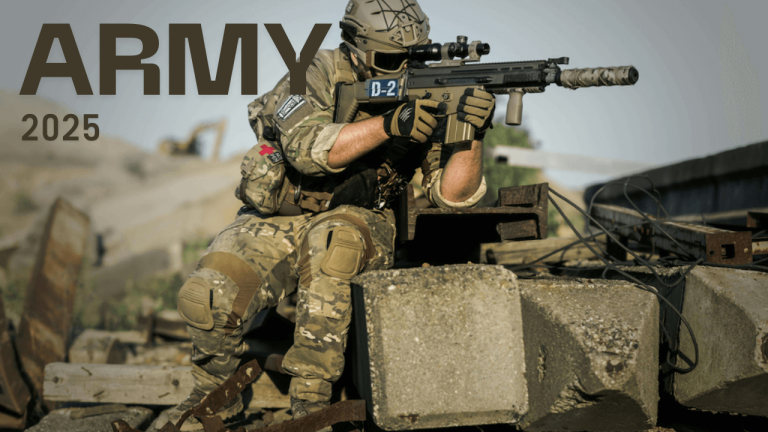When people hear the word “soldier,” they often imagine a full-time professional in uniform, living on a base and serving every single day. But in many countries, there is another kind of soldier—the Army Reserve. These are men and women who train part-time, often while working in regular civilian jobs, but who can be called to active duty during wars, crises, or overseas missions.
One of the most common questions asked is: Can Army Reserves refuse deployment? The simple answer is no, not really. Once you sign up, you are bound by law to serve if called. However, the way this works varies from country to country, and the rules depend heavily on whether a nation is democratic or authoritarian.
United States: A Balancing Act Between Civilian Life and Duty
The U.S. Army Reserve is one of the most organized in the world, with nearly 189,000 soldiers. Most reservists train about one weekend a month and two weeks in the summer, balancing military duty with careers in teaching, healthcare, engineering, or even small businesses.
They are paid for their training days and receive benefits like retirement credits and health coverage when mobilized. But when war or national emergencies arise, reservists can be activated by federal law. During the wars in Iraq and Afghanistan, tens of thousands of reservists were deployed for long tours overseas.
Could they refuse? The short answer is no—unless they had a valid reason such as medical issues, family hardship, or religious objections. Refusal without cause is treated as insubordination under the Uniform Code of Military Justice. Many reservists discovered that joining “part-time” could quickly turn into a full-time combat commitment.
United Kingdom: The Citizen-Soldier Tradition
In the U.K., the Army Reserve (once called the Territorial Army) has about 27,000 trained personnel. Like their American counterparts, British reservists train in evenings, weekends, and annual camps, receiving pay for each training day along with tax-free bonuses for longer commitments.
Deployment works under the Reserve Forces Act 1996, which gives the government the right to mobilize reservists. Refusal is not allowed unless they successfully apply for exemption. Exemptions are rare and usually granted only for serious family hardship, medical problems, or vital civilian jobs—such as doctors needed in hospitals during a national emergency.
During the Iraq War in 2003, more than 12,000 U.K. reservists were deployed alongside regular troops. While a handful appealed against deployment, most had to serve. The system reflects the British tradition of the “citizen-soldier”—ordinary people who step up when the nation calls.
China: Service as a Civic Duty
China takes a very different approach. Its People’s Liberation Army (PLA) Reserve Force is massive, with estimates of over 500,000 personnel, but the structure is deeply tied to local governments and the Communist Party. Reservists often train in local units connected to factories, universities, or provincial administrations, blending civilian and military roles.
Unlike the U.S. or U.K., where service is voluntary, in China military duty is seen as a civic responsibility. Refusing mobilization is not really an option—it can result in heavy fines, job loss, and even imprisonment. Reservists may be mobilized not only for military conflict but also for disaster relief, as seen during the 2008 Sichuan earthquake, when reserve units rushed to help with rescue and recovery.
Payment is modest compared to Western standards, and the emphasis is more on patriotic duty than personal financial reward.
Russia: From Soviet Conscription to Modern Reserve Contracts
Russia’s reserve system is built on the Soviet tradition of mass mobilization. Officially, there are around 2 million reservists, though only a fraction—perhaps 20,000 to 30,000—train regularly under contract. Since 2015, Russia has tried to modernize by paying reservists to stay in an “active reserve,” training a few times a year in exchange for monthly stipends.
But when war broke out in Ukraine in 2022, President Putin announced a “partial mobilization” of 300,000 men, many of them reservists who had not trained in years. Thousands attempted to flee abroad to avoid service, but those who refused faced harsh penalties under new wartime laws, including prison sentences. In Russia, refusing deployment is effectively treated as draft dodging or desertion, carrying criminal consequences.
Other Examples: Different Nations, Different Rules
Not every country handles reserves in the same way. In Israel, for instance, military service is compulsory, and reservists may be called up for years after their initial duty. Refusing service can result in jail time, although some exemptions exist for religious and medical reasons.
In Germany, compulsory service ended in 2011, but reservists still play a role in supporting NATO operations. They receive pay equal to active-duty soldiers when called up, and exemptions are possible but strictly regulated.
Even in smaller military countries like Australia and Canada, reserves form a critical part of the defense structure. They usually train part-time, receive pay for training days, and can be mobilized for overseas operations. Refusal again is rarely accepted unless supported by a legal exemption.
Final Thoughts: A Commitment Beyond the Uniform
So, can Army Reserves refuse deployment? The answer depends on the country, but the general truth is this: once you join, you’ve made a legal and moral commitment to serve.
- In democratic countries like the U.S., U.K., Canada, or Australia, exemptions exist, but they are limited.
- In states like China and Russia, refusal is virtually impossible, with heavy punishments for those who try.
- In countries under constant security pressure, like Israel, reservists are considered the backbone of national defense, and refusal is socially frowned upon as well as legally punished.
The Army Reserve is not just “weekend soldiering.” It is a bridge between civilian life and national defense, a system that allows nations to expand their armies when needed without keeping everyone in uniform full-time. For those who join, it is both a sacrifice and an honor—one that may, at some point, demand leaving home, family, and work to serve on the front lines.






